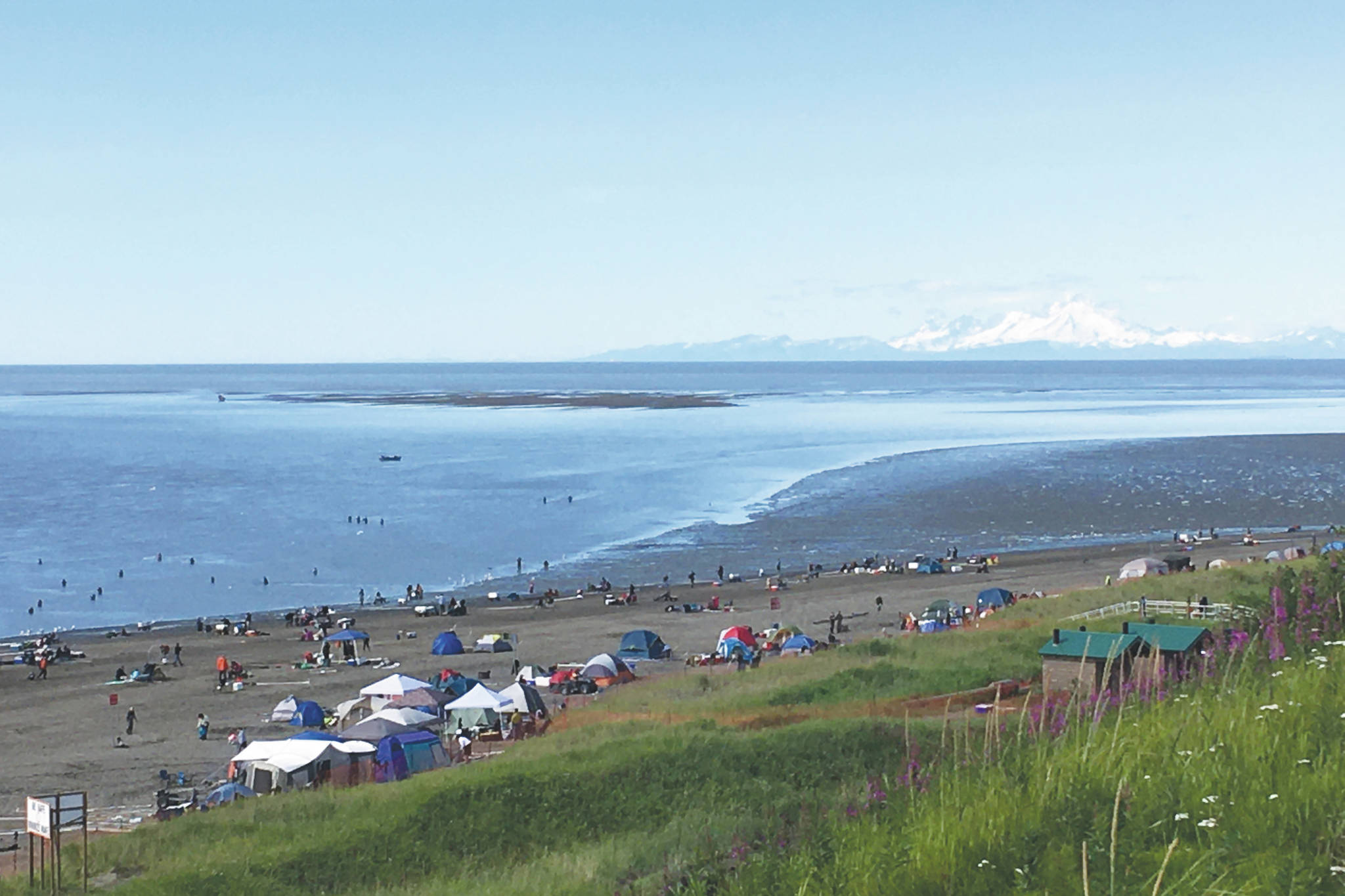Despite an ongoing pandemic, the 2020 season for the Kenai River’s dipnet fishery proved to be even more popular than it was last year.
Paul Ostrander, city manager for the City of Kenai, said this year the city received $555,018 in gross revenue from the fishery, well over the $441,206 they earned in 2019. Ostrander wasn’t surprised by the numbers, because he noted that trails and campgrounds all over the Kenai Peninsula have been busy throughout the summer.
“Alaskans were somewhat limited in where they could travel this summer, and the dipnet fishery is a resident-only fishery, so a lot of people ended up staying in the state and coming here for their vacations,” Ostrander said.
This season saw some new changes directly related to the COVID-19 pandemic, which Ostrander said were implemented smoothly. All transactions for parking and other fees were cashless in order to have less money changing hands between visitors and staff. Ostrander said this ended up saving a lot of time at the end of the day because no one had to count up all the cash.
“There were virtually no complaints about the cashless system, and it was definitely safer for the employees,” Ostrander said.
This year also saw additional hand-washing stations outside public restrooms, and more dumpsters on the beaches for easier cleanup. Even with the additional safety measures in place, Ostrander said their revenue was enough to cover all of this year’s costs.
The dipnet season ran from July 10 to July 31, and one of the concerns going into the season was that the large number of people congregating on the Kenai River beaches could lead to a spike in COVID-19 cases locally. Two weeks out from the last day of the season, Ostrander said he is “cautiously optimistic” that the dipnet season did not cause a significant increase in cases.
“So far we haven’t seen an impact in terms of a spike in cases,” Ostrander said. “If there was going to be one, I would think we’d have seen it by now.”

